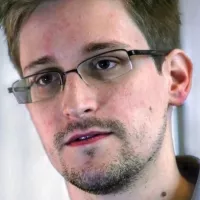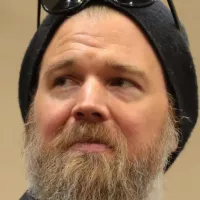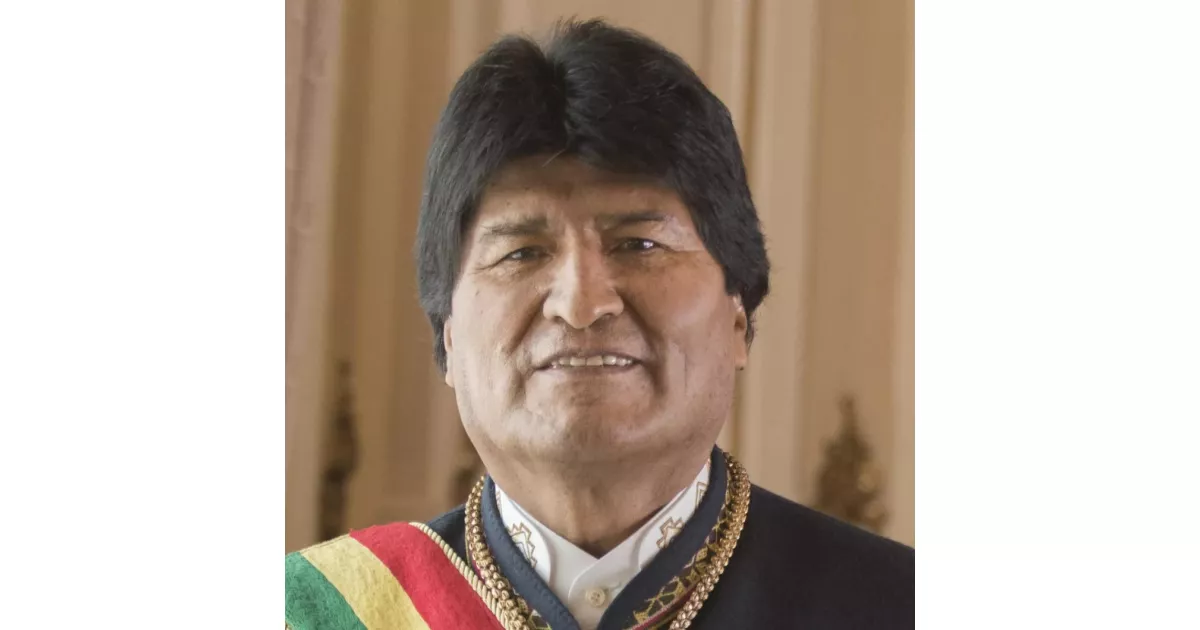Discover the career path of Evo Morales, from the first major opportunity to industry-changing achievements.
Evo Morales is a Bolivian politician and former president (2006-2019), notable as the country's first indigenous president. As a former cocalero activist and trade union organizer, he led the Movement for Socialism (MAS) party and implemented left-wing policies aimed at improving the socioeconomic conditions and legal protections for Bolivia's indigenous population. His administration also worked to counter the influence of the United States and resource-extracting multinational corporations within Bolivia.
1984: Secretary of Records
From 1984 to 1985, Morales served as Secretary of Records for the movement, and in 1984 he was present at a roadblock where 3 campesinos were killed.
1985: General Secretary
In 1985, Evo Morales became General Secretary of the August Second Headquarters.
1988: Executive Secretary
In 1988, Evo Morales was elected as the Executive Secretary of the Federation of the Tropics.
March 1995: Formation of Assembly for the Sovereignty of the Peoples
On March 27, 1995, the Assembly for the Sovereignty of the Peoples (ASP) was formed at the 7th Congress of the CSUTCB.
1996: Chairman of Committee
In 1996, Morales was appointed chairman of the Committee of the Six Federations of the Tropics of Cochabamba.
1997: Elected to Chamber of Deputies
In 1997, Evo Morales was elected to the Chamber of Deputies in the National Congress as a representative for El Chapare, securing 70.1% of the local vote. The IU/ASP gained four seats in Congress, obtaining 3.7% of the national vote, rising to 17.5% in Cochabamba.
1998: Became leader of MAS
In 1998, Evo Morales became the leader of the Movement for Socialism (MAS).
1998: Forms Political Instrument for the Sovereignty of the Peoples (IPSP)
In 1998, a leadership contest between Alejo Véliz and Morales led to a schism in the ASP. Morales and his supporters split to form their own party, the Political Instrument for the Sovereignty of the Peoples (IPSP). The movement's bases defected en masse to the IPSP, leaving the ASP to crumble. In 1998, Morales led another cocalero march from El Chapare to la Paz, and came under increasing criticism from the government.
1998: Elected Leftist President
Since 1998, Morales' victory was identified as part of the broader regional pink tide. He was the sixth self-described leftist president to be elected in Latin America.
December 1999: MAS Secures Municipal Seats
In December 1999, the MAS secured 79 municipal council seats and 10 mayoral positions, gaining 3.27% of the national vote, and 70% of the vote in Cochabamba.
2002: Increase in Income from Hydrocarbon Extraction
Bolivia's income from hydrocarbon extraction increased from $173 million in 2002 to $1.3 billion by 2006 as a result of state control of the hydrocarbon industry.
2002: MAS gains popularity
In 2002 presidential election, the MAS gained 20.94% of the national vote, becoming Bolivia's second largest party. They won 8 seats in the Senate and 27 in the Chamber of Deputies. Now the leader of the political opposition, Morales focused on criticising government policies rather than outlining alternatives. He met with Venezuela's Hugo Chávez for the first time.
2004: MAS Becomes Largest National Party
In the 2004 municipal election, the MAS became the country's largest national party, with 28.6% of all councilors in Bolivia. However, they failed to win the mayoralty in any big cities. In Bolivia's wealthy Santa Cruz region, a strong movement for autonomy had developed, and they considered armed insurrection to secede from Bolivia should MAS take power.
December 2005: General Election
In December 2005, Bolivia prepared for a general election after Mesa resigned in March 2005. Hiring the Peruvian Walter Chávez as its campaign manager, the MAS electoral campaign was based on Salvador Allende's successful campaign in the 1970 Chilean presidential election.
June 2006: Nationalization Plan Announced
In June 2006, Morales announced his plan to nationalize mining, electricity, telephones, and railroads.
July 2006: Election to form a Constitutional Assembly
In July 2006, an election to form a Constitutional Assembly was held. MAS won 137 of its 255 seats, and the Assembly was inaugurated in August.
2006: Nationalization of Oil and Gas Sector
After coming into office in 2006, Evo Morales' administration nationalized the oil and gas sector in Bolivia.
2006: Law reallocating state-owned lands
In 2006, a law reallocated state-owned lands, with this agrarian reform entailing distributing land to traditional communities rather than individuals.
2006: Bono Juancito Pinto program established
In 2006, the Bono Juancito Pinto program was established, providing US$29 per year to parents who kept their children in public school with an attendance rate above 80%.
2006: Presidential decree undoing informalization of labor
On International Workers' Day 2006, Evo Morales issued a presidential decree undoing aspects of the informalization of labor which had been implemented by previous neoliberal governments.
2006: Chairman of Committee
Until 2006, Morales was chairman of the Committee of the Six Federations of the Tropics of Cochabamba.
February 2007: Nationalization of Vinto Metallurgy Plant
In February 2007, the government nationalized the Vinto metallurgy plant and refused to compensate Glencore, which the government said had obtained the contract illegally.
2007: Economic growth and construction boom
In 2007, Bolivia maintained one of the world's highest levels of economic growth during the global financial crisis. This economic strength led to a nationwide boom in construction, allowing the state to build up strong financial reserves. The government prioritized rural infrastructure improvement, bringing roads, running water, and electricity to areas that lacked them.
2007: Ministry of Institutional Transparency and Fight Against Corruption created
In 2007, Evo Morales issued a presidential decree to create the Ministry of Institutional Transparency and Fight Against Corruption.
2008: Indigenous people in universities
In 2008, it was estimated that half of the students enrolled in Bolivia's 11 public universities were indigenous, while three indigenous-specific universities had been established, offering subsidized education.
2008: Renta Dignidad initiative expanded
In 2008, the Renta Dignidad initiative expanded the previous Bonosol social security for seniors program, increasing payments to $344 per year and lowering the eligibility age from 65 to 60.
January 2009: New Constitution approved in referendum
In January 2009, a referendum was held for the new Constitution in Bolivia. 61.4% of voters approved the new constitution. Before the referendum, Morales' government negotiated with the parliamentary opposition, resulting in 100 of the 411 elements of the Constitution being changed. The governors of the eastern provinces rejected the changes, believing it gave them insufficient autonomy, while various Indianist and leftist members of MAS felt that the amendments conceded too much to the political right.
April 2009: Morales wins landslide re-election
In April 2009, general elections were held in Bolivia. The opposition demanded a new biometric registry system. Morales went on a five-day hunger strike to push the opposition to rescind their demands. Morales and the MAS won with a landslide majority, polling 64.2%. Voter participation reached an all-time high of 90%. The MAS won a two-thirds majority in both the Chamber of Deputies and the Senate. Morales proclaimed that he was obligated to accelerate the pace of change and deepen socialism.
December 2009: Morales attends UN Climate Change Conference in Copenhagen
In December 2009, Morales attended the 2009 United Nations Climate Change Conference in Copenhagen, Denmark, where he blamed climate change on capitalism and called for a financial transactions tax to fund climate change mitigation.
2009: Advocacy of Communitarian Socialism
From 2009, Evo Morales has advocated "communitarian socialism" as part of his political approach, described by his government as "Evoism".
2009: Suggested reforms to labor laws
In 2009, Evo Morales's government put forward suggested reforms to the 1939 labor laws.
2009: UNESCO declares Bolivia free from illiteracy
In 2009, UNESCO declared Bolivia free from illiteracy following a literacy campaign with Cuban assistance. The World Bank stated that illiteracy had declined by 5%.
2009: Vice Ministry for Decolonization established
In 2009, a Vice Ministry for Decolonization was established, which proceeded to pass the 2010 Law against Racism and Discrimination banning the espousal of racist views in private or public institutions.
2009: Bono Juana Azurduy program expanded
In 2009, the Bono Juana Azurduy program expanded a previous public maternity insurance, giving cash to low-income mothers who proved that they and their baby had received pre- and post-natal medical care and gave birth in an authorized medical facility.
April 2010: Morales oversees World's People Conference on Climate Change
In April 2010, Morales, deeming the Copenhagen conference a failure, oversaw the World's People Conference on Climate Change and the Rights of Mother Earth outside of Cochabamba.
April 2010: MAS gains in departmental elections
In April 2010, the departmental elections in Bolivia saw further gains for MAS, solidifying the party's influence at the regional level.
2010: Reduced pension age
In 2010, Evo Morales's government reduced the pension age to 58.
2010: Law permitting formation of recognized indigenous territories
In 2010, a law was introduced permitting the formation of recognized indigenous territories. Also in 2010, Morales' government founded a Unit of Depatriarchalization and declared 28 June to be Sexual Minority Rights Day, encouraging a gay-themed TV show on the state channel.
2010: Law against Racism and Discrimination
The 2010 Law against Racism and Discrimination was passed, banning the espousal of racist views in private or public institutions.
2013: Law passed to combat domestic violence against women
In 2013, the government passed a law to combat domestic violence against women.
2014: Anti-Poverty Programs Show Success
By 2014, Evo Morales' anti-poverty programs had gained wide support in Bolivia, with poverty reduced by 25%, extreme poverty by 43%, social spending increased by over 45%, and the minimum wage increased by 87.7%.
2014: Expansion of state medical facilities
By 2014, Evo Morales's government had opened twenty hospitals and increased basic medical coverage up to the age of 25.
September 2015: Referendum authorized by Plurinational Legislative Assembly
On September 2015, the Plurinational Legislative Assembly authorized a referendum by a vote of 112 to 41, sponsored by Morales' party, the Movement for Socialism (MAS). This referendum aimed to amend the constitution through a national vote.
October 2015: Morales becomes Bolivia's longest serving president
On 17 October 2015, Morales surpassed Andrés de Santa Cruz to become Bolivia's longest-serving president, having been in office for over nine years. His enduring popularity was attributed to his socio-economic reforms.
February 2016: Referendum held on constitutional amendment
On February 2016, a referendum was held on a constitutional amendment that would have allowed presidents to serve three consecutive terms, potentially enabling Morales to run for a fourth term. The proposed amendment was narrowly rejected.
December 2016: MAS nominated Morales for 2019 election
In December 2016, despite a previous referendum loss, MAS nominated Morales as their candidate for the 2019 presidential election and declared their intention to seek legal avenues to ensure the legality of Morales' candidacy.
September 2017: MAS petitioned Plurinational Constitutional Court to abolish term limits
In September 2017, MAS petitioned the Plurinational Constitutional Court to abolish presidential term limits, arguing that these limits violated human rights under the American Convention on Human Rights (ACHR).
February 2020: Morales Announced Candidacy
In February 2020, Morales announced his intention to run for a seat in the Plurinational Legislative Assembly in the 2020 Bolivian general election, but was later ruled ineligible by the national electoral tribunal.
November 2024: Morales Barred From Running in 2025 Election
On November 8, 2024, the Plurinational Constitutional Tribunal barred Evo Morales from running for president in the 2025 Bolivian general election, citing Article 168 of the Constitution, which limits a citizen to two consecutive presidential terms. Morales' lawyers contested the decision as politically motivated.
August 2025: Upcoming General Elections
In August 2025, General Elections will take place in Bolivia, but not under an Evo Morales presidency due to a ruling against his eligibility to run.
Mentioned in this timeline

Barack Obama the th U S President - was the...
Nigeria is a West African nation the most populous in...
Venezuela officially the Bolivarian Republic of Venezuela is located on...
Africa is the second-largest and second-most populous continent comprising of...

News encompasses information about current events disseminated through various media...

Edward Snowden a former U S computer contractor who is...
Trending
55 minutes ago Hanfmann Advances in Santiago 2026 After Win, Set to Face Carabelli.

55 minutes ago Griekspoor to face Medvedev in Dubai final: Highlights and predictions surface.
2 hours ago Lesotho: Frontliners help family overcome poverty; South Africa sees tourism boom in 2026.

2 hours ago Sara Eisen on The View: Tense Moments and Financial Expertise Displayed.

3 hours ago Ryan Hurst's Kratos Revealed in Prime Video's 'God of War' Series: Cast Updates

3 hours ago Cowboys to Franchise Tag George Pickens for $28 Million: A Bold Move
Popular

Jesse Jackson is an American civil rights activist politician and...

Barack Obama the th U S President - was the...

Susan Rice is an American diplomat and public official prominent...

XXXTentacion born Jahseh Dwayne Ricardo Onfroy was a controversial yet...

Michael Joseph Jackson the King of Pop was a highly...

Kashyap Pramod Patel is an American lawyer who became the...
